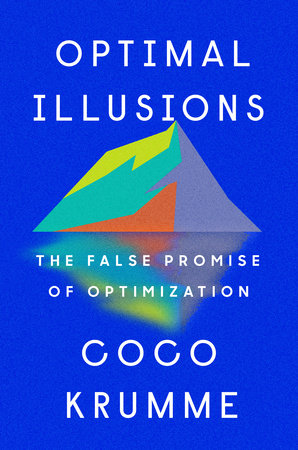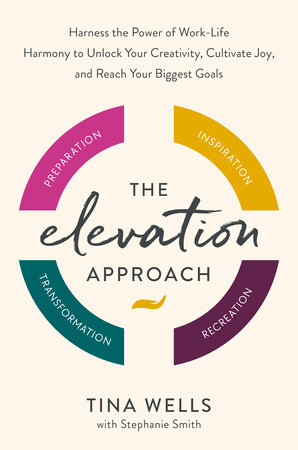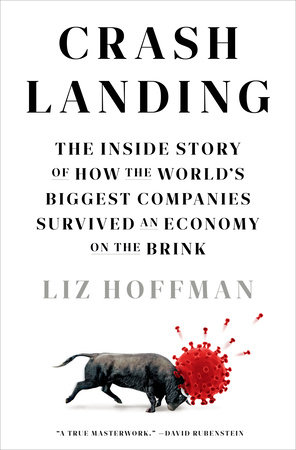Quick Summary
One Sentence Summary
“Becoming Steve Jobs” offers a nuanced and in-depth look at the evolution of Apple’s co-founder, revealing his journey from an impulsive entrepreneur to a visionary leader.
Big Idea
The big idea behind “Becoming Steve Jobs” is to debunk the myth of Steve Jobs as a static genius and instead portray his life as a journey of personal and professional growth, shaped by failures, relationships, and introspection.
Five Key Ideas
- Evolution of Leadership: Jobs’ transformation from a brash, impulsive young CEO to a mature, thoughtful leader.
- Importance of Failure: How Jobs’ failures, including his ousting from Apple, were crucial for his eventual success.
- Impact of Relationships: Influence of key individuals, like John Sculley and Bob Iger, on Jobs’ personal and professional life.
- Innovation and Vision: Jobs’ relentless pursuit of perfection and his visionary approach to technology and design.
- Personal Growth: Jobs’ journey of self-awareness and how it affected his management style and life philosophy.
Actionable Advice
Embrace failure as a learning opportunity, value the relationships that shape you, and always strive for continuous personal and professional growth.
About the Author
Rick Tetzeli is a journalist and editor, while Brent Schlender is a long-time tech reporter with deep insights into Silicon Valley. Their combined expertise offers a unique perspective on Jobs’ life.
Read Next
For further insights into Jobs’ life, consider reading “Steve Jobs” by Walter Isaacson for a comprehensive biography, and “The Innovator’s Dilemma” by Clayton M. Christensen for understanding the disruptive innovation that Jobs was known for. Also, “Creativity, Inc.” by Ed Catmull provides a look into the creative culture of Pixar, a company Jobs significantly influenced.
In Depth
Evolution of Leadership
Steve Jobs, often hailed as a tech visionary, didn’t start as the composed leader many remember. He was brash and impulsive. His leadership evolution is a central theme in “Becoming Steve Jobs.”
His journey began at Apple, a company he co-founded at 21. Young and passionate, Jobs often clashed with employees. He demanded perfection, sometimes unreasonably so. This early version of Jobs led to groundbreaking products but also created a tense environment.
Jobs’ first stint at Apple ended abruptly. He was ousted in 1985, a pivotal moment. This failure was not the end but a turning point. He went on to found NeXT and took over Pixar. These experiences matured him. He learned to balance his demanding nature with empathy and patience.
The book highlights his return to Apple in 1997. This marked a new chapter. Jobs 2.0, if you will. He still had his drive for perfection, but his approach was refined. He listened more, built stronger teams, and fostered a more collaborative environment. This evolution is evident in the products that defined his second stint at Apple, like the iPod and iPhone.
A detailed example is his relationship with Jony Ive, Apple’s chief designer. Early Jobs might have clashed with someone as detail-oriented as Ive. But the evolved Jobs found in Ive a kindred spirit. Their collaboration led to iconic designs. In the book, Ive reflects on Jobs’ growth, noting how he became “much more patient and gentle.”
A telling quote from the book is:
“The Steve Jobs who returned to Apple was a much different person than the brash young genius who had left. He had learned much from his failures and had gained a sense of humility and perspective.”
This quote captures the essence of Jobs’ leadership evolution. It wasn’t overnight. It was a journey shaped by failure, reflection, and a genuine desire to grow.
In summary, Steve Jobs’ transformation from an impulsive entrepreneur to a visionary leader wasn’t just about business acumen. It was about personal growth, learning from failures, and building relationships. This evolution is a testament to the idea that leadership is not static; it’s a continuous journey.
Importance of Failure
Steve Jobs’ story is as much about failure as it is about success. “Becoming Steve Jobs” paints a clear picture of how his failures were stepping stones to his triumphs.
Jobs faced significant setbacks. His removal from Apple in 1985 is the most notable. This event could have broken many. For Jobs, it was a catalyst for growth. He learned resilience and adaptability, qualities that later defined his leadership.
The book discusses NeXT, a company Jobs founded after leaving Apple. NeXT wasn’t a commercial success, but it was crucial for Jobs’ development. He experimented with ideas, some of which laid the groundwork for future Apple products.
A detailed example is the development of NeXT’s computer system. Despite its commercial failure, the NeXTSTEP operating system became the foundation for macOS. This shows how Jobs turned a failure into a valuable asset.
The book states:
“Though NeXT was considered a failure in the marketplace, it was a crucible for Steve’s growth as a business leader, technologist, and human being.”
This quote underscores that Jobs didn’t let failure define him. Instead, he learned and evolved from it.
In summary, Steve Jobs’ journey illustrates the importance of embracing failure as a part of the growth process. His ability to learn from setbacks and persist despite them played a crucial role in his eventual success.
Impact of Relationships
Steve Jobs didn’t shape his journey alone. “Becoming Steve Jobs” emphasizes the profound impact relationships had on his personal and professional life.
Jobs connected with influential figures across industries. These relationships were diverse: mentors, friends, rivals, and collaborators. Each played a role in shaping his vision and approach.
A key relationship was with John Sculley, Apple’s CEO in the 1980s. Initially a mentor-figure, their relationship turned sour, leading to Jobs’ ousting from Apple. This experience taught Jobs about trust, power dynamics, and the importance of aligning visions within a company.
Another significant relationship was with Bob Iger, Disney’s CEO. Their bond was crucial for the Pixar-Disney deal, showcasing Jobs’ ability to build strategic partnerships. This collaboration not only benefited both companies but also marked Jobs’ success in the entertainment industry.
The book details these relationships and their impact on Jobs’ life. A poignant example is his bond with Laurene Powell, his wife. She provided stability and support, helping him navigate both personal and professional challenges. This relationship humanized Jobs, showing his vulnerabilities and need for a support system.
A quote illustrating this is:
“Laurene was a grounding force in his life, providing emotional support and a sense of normalcy amidst the chaos of his professional world.”
This quote highlights the profound influence personal relationships had on Jobs. They offered balance and perspective, elements crucial for his success.
In summary, the relationships in Steve Jobs’ life played a fundamental role in shaping his journey. They influenced his decisions, provided support during challenges, and contributed to his growth both as a leader and an individual.
Innovation and Vision
Steve Jobs was synonymous with innovation. “Becoming Steve Jobs” delves into his relentless pursuit of perfection and visionary approach to technology and design.
Jobs was not just about creating products; he aimed to revolutionize industries. His vision went beyond what was feasible to what was possible. He challenged norms, combined aesthetics with functionality, and always aimed for excellence.
A prime example is the iPhone. The book describes how Jobs envisioned a device that would change communication. He imagined something that was not just a phone but a gateway to information and interaction. The iPhone’s development faced skepticism, technical hurdles, and internal doubts. Yet, Jobs’ vision and insistence on perfection turned it into a product that redefined smartphones.
The book notes:
“With the iPhone, Steve didn’t just create a phone; he envisioned and executed a tool that became an integral part of daily life for millions.”
This quote captures the essence of Jobs’ approach to innovation. He didn’t just create; he transformed.
In summary, Steve Jobs’ innovation and vision were central to his legacy. His ability to foresee the potential of technology and his insistence on perfection led to products that were not just successful but revolutionary.
Personal Growth
Steve Jobs’ journey was not just about technological innovation, but also about personal evolution. “Becoming Steve Jobs” highlights his path of self-awareness, which significantly influenced his management style and life philosophy.
Jobs was known for being difficult and demanding in his early years at Apple. However, over time, he evolved into a more empathetic and reflective leader. This transformation was not accidental; it was the result of deliberate introspection and a willingness to learn from his experiences.
A striking example of this personal growth was his approach to collaboration later in his career. Initially, Jobs was known for his unilateral decisions and abrasive style. However, after his return to Apple, he fostered a more collaborative environment, valuing the input of team members and building a culture of shared vision. This change was not just beneficial for Apple’s products but also for the company’s overall morale.
The book articulates this transformation with a quote:
“The most profound change in Steve was his evolution from a lone warrior to a leader who took joy in the accomplishments of his team.”
This quote encapsulates the essence of Jobs’ personal growth. He transitioned from a solitary figure to a leader who thrived on teamwork and shared success.
In summary, Steve Jobs’ journey underscores the importance of personal growth and adaptability. His evolution from a brash young entrepreneur to a visionary leader demonstrates that personal development is integral to lasting success.
Actionable Advice
- Embrace Failure: View setbacks as opportunities for learning and growth.
- Foster Relationships: Build meaningful connections; they can shape your journey.
- Pursue Vision: Have a clear vision and strive relentlessly to achieve it.
- Collaborate Effectively: Value teamwork and diverse perspectives.
- Adapt and Grow: Be open to change and continuously seek personal development.
- Balance Empathy and Drive: Combine a strong work ethic with understanding and patience.
- Learn from Others: Seek mentorship and learn from the experiences of others.
- Stay Curious: Always be open to new ideas and innovations.
- Focus on Quality: Strive for excellence in everything you do.
- Maintain Perspective: Balance professional ambitions with personal well-being.
About the Author
Rick Tetzeli is an accomplished journalist with deep roots in technology reporting. He’s the former editor of “Fast Company” and “Entertainment Weekly” and has worked for “Fortune Magazine.” Tetzeli’s work often focuses on the intersection of technology, business, and culture, reflecting his keen insights into industry trends and corporate leadership.
Brent Schlender is a seasoned journalist renowned for covering Silicon Valley for over three decades. He has written extensively for publications like “The Wall Street Journal” and “Fortune Magazine.” Schlender’s work is distinguished by his close relationships with tech giants, giving him unique perspectives on the industry.
Both authors believe in telling nuanced stories that go beyond surface-level facts. They aim to provide in-depth insights into their subjects, revealing the complexities and human aspects of leaders like Steve Jobs. Their collaborative work in “Becoming Steve Jobs” blends their journalistic expertise, offering a well-rounded portrayal of one of the tech world’s most iconic figures.
Read These Next
You might like these similar books
- “Steve Jobs” by Walter Isaacson
- “The Innovator’s Dilemma” by Clayton M. Christensen
- “Elon Musk: Tesla, SpaceX, and the Quest for a Fantastic Future” by Ashlee Vance
- “The Everything Store: Jeff Bezos and the Age of Amazon” by Brad Stone
- “Shoe Dog: A Memoir by the Creator of Nike” by Phil Knight
FAQ
Q: What is the main focus of ‘Becoming Steve Jobs’?
A: The book focuses on Steve Jobs’ personal and professional growth, showcasing his evolution from a brash young entrepreneur to a visionary leader.
Q: Is ‘Becoming Steve Jobs’ an authorized biography?
A: No, it’s not an authorized biography but is based on extensive interviews and research by the authors.
Q: How does this book differ from Walter Isaacson’s ‘Steve Jobs’?
A: ‘Becoming Steve Jobs’ offers a different perspective, focusing more on Jobs’ personal growth and leadership evolution, while Isaacson’s book is a comprehensive biography.
Q: Does the book cover Steve Jobs’ entire life?
A: It mainly covers his professional life and growth, with insights into his personal life as it relates to his career.
Q: Who would benefit from reading this book?
A: Anyone interested in leadership, innovation, and the tech industry, or those seeking inspiration for personal and professional growth.







